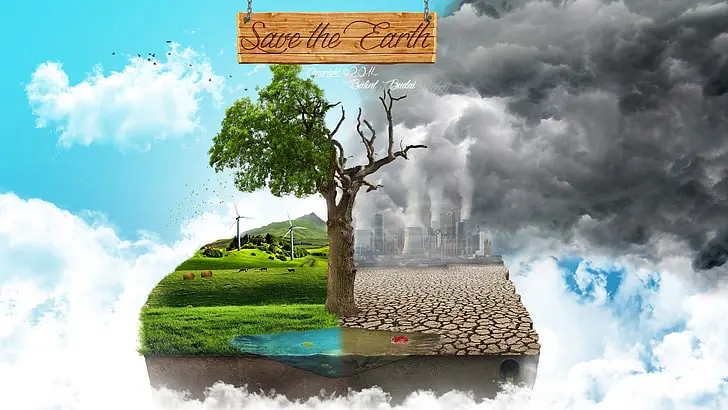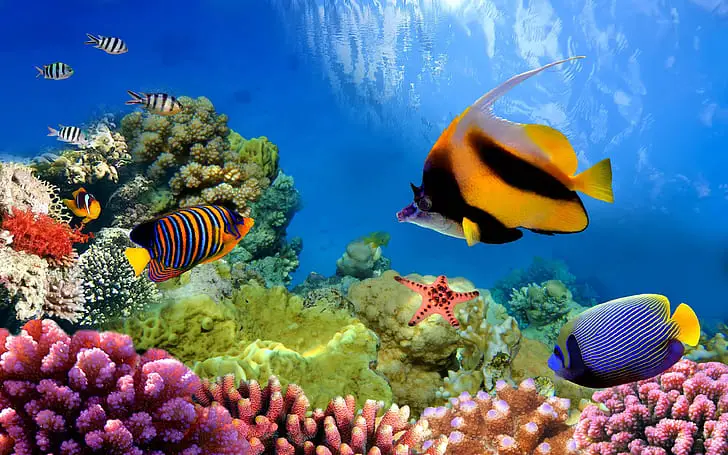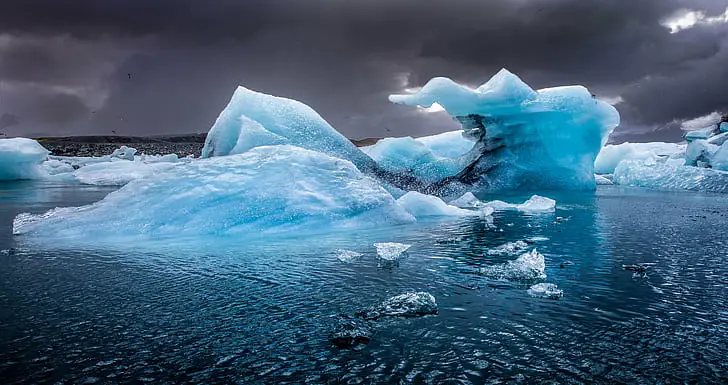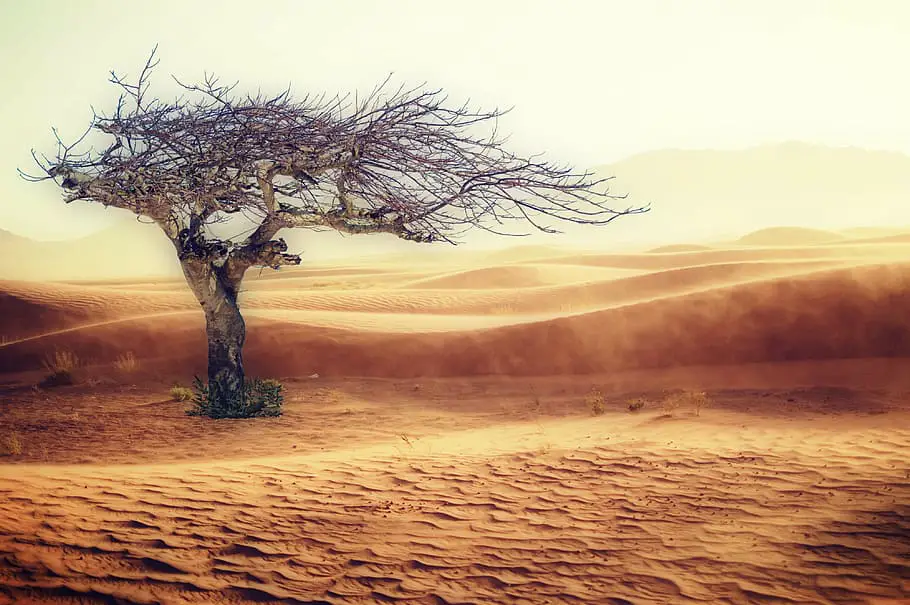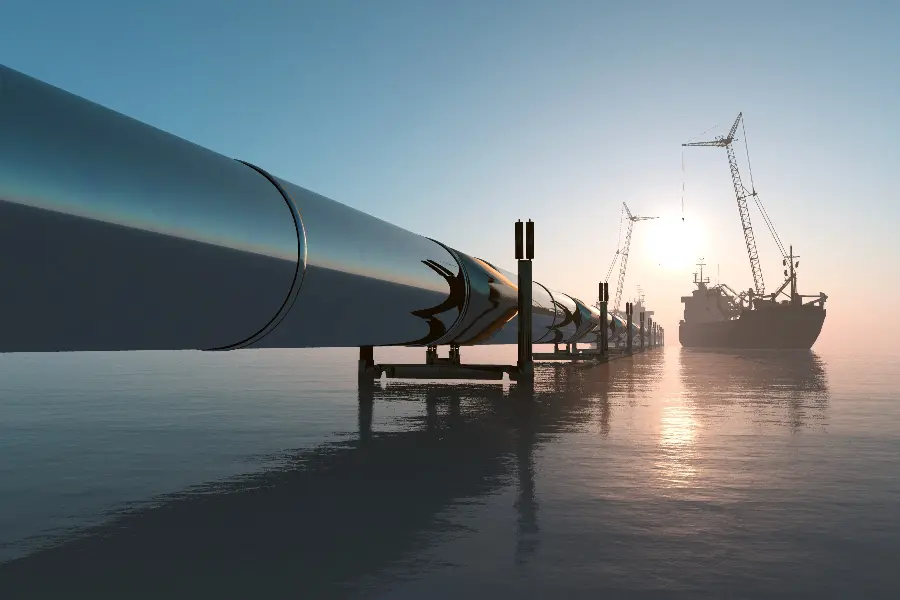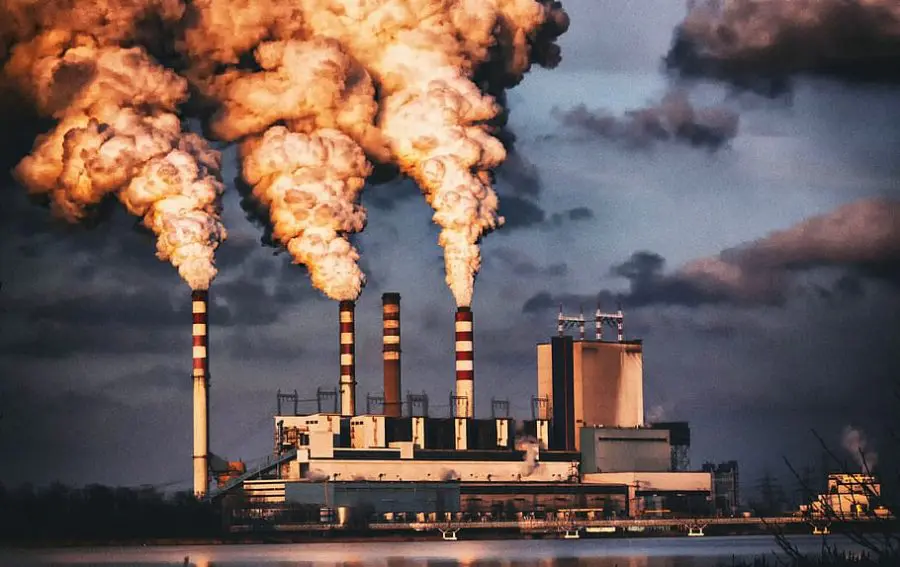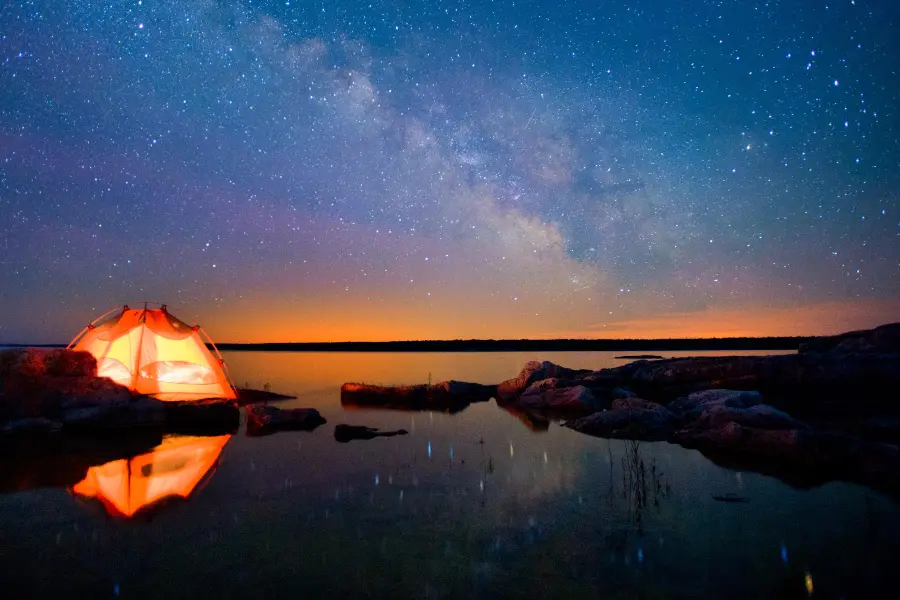
Experience camping differently as climate change is making it harder for campers. Discover the new challenges in recent years and learn adaptive strategies for outdoor adventures.
Have you noticed how the weather patterns are changing, making those summer camping trips and outdoor recreation a bit more challenging? Yes, you guessed it right.
Climate change is making it harder for campers. It’s not just about packing your tent and hitting the road anymore.
Now, the climate impacts we need to consider are higher temperatures, unpredictable weather, and even the risk of wildfires.
But don’t let this dampen your adventurous spirit. Instead, let’s explore how we can adapt and continue to enjoy the great outdoors, even in a changing climate.
Climate Change is Making it Harder For Campers
Ever tried setting up a tent in the middle of a heatwave, or found your favorite camping spot ravaged by wildfires?
Climate change is making it harder for campers, and it’s high time we talk about it.
In this post, we’ll delve into the nitty-gritty of how our beloved camping trips are being reshaped by the changing climate.
We’ll explore the challenges, from extreme weather events to shifting wildlife patterns, and discuss how we, as campers, can adapt.
So, grab your camping gear, and let’s navigate this new terrain together!
Brief Overview of Climate Change
Let’s start with a quick refresher on climate change. You’ve probably heard the term thrown around a lot, but what does it really mean?
Well, in the simplest terms, climate change refers to significant changes in global temperatures and weather patterns over time.
While climate has varied throughout Earth’s history, the rapid warming we’re seeing now is unprecedented.
It’s primarily driven by human activities, especially the burning of fossil fuels like coal, oil, and gas, which release carbon dioxide and other greenhouse gases into the atmosphere.
These gases trap heat from the sun, causing the Earth’s average temperature to rise, a phenomenon often referred to as global warming.
Impact of Climate Change on Various Aspects of Life, Including Camping
Now, you might be wondering, What does all this have to do with my camping trips? Quite a lot, actually.
Climate change is like a domino effect; it doesn’t just heat up the planet, it disrupts entire ecosystems.
This means more heatwaves, making those summer camping trips a lot sweatier.
It means more forest fires, which can pose a serious risk if you’re camping in or near a forest and result in poor air quality that can negatively affect human health.
It means changes in wildlife behavior, which can affect everything from birdwatching to fishing.
And it means more unpredictable weather so that sunny camping weekend you planned could easily turn into a washout.
But don’t worry, it’s not all doom and gloom. As we navigate through this post, we’ll discuss how we can adapt and continue to enjoy our camping adventures in a changing climate.
The Impact of Climate Change on Camping
Let’s dive a bit deeper into how exactly climate change is impacting our camping adventures.
You know, it’s like Mother Nature decided to shake things up a bit, and now we’re seeing some pretty significant changes in our favorite outdoor spaces.
It’s not just about hotter summers or colder winters. The shifts brought on by climate change are adding a whole new dimension to what it means to be a camper in the 21st century.
So, let’s unpack this together and see what climate change has in store for us outdoor enthusiasts.
Increased Temperatures and Heatwaves
First up, let’s talk about the heat. We’ve all experienced those sweltering summer days when even the thought of moving makes you break out in a sweat.
Now, imagine dealing with that while you’re trying to set up a tent or hike up a trail in these hotter days. Not exactly a fun picture, right?
Climate change is leading to increased temperatures and more frequent heat waves.
This means our beloved summer camping trips are getting hotter and hotter. It’s not just about comfort, either.
Warmer winters mean less snow in many areas which limits spring runoff and can cause drought conditions.
In coming years you may find a favorite stream you relied on for a water supply has lower water levels or even completely dried up as a result.
High temperatures can lead to dehydration and heat exhaustion, which are serious health risks.
So, remember to pack plenty of water and take frequent breaks to cool down.
Increased Risk of Wildfires
Next on the list is wildfires. There’s something deeply calming about sitting around a campfire, roasting marshmallows, and sharing stories.
But the increased risk of wildfires is a stark reminder of the destructive power of fire.
Dry conditions and extreme heat are both side effects of climate change that create the perfect environment for wildfires to start and spread.
This doesn’t mean we have to give up on campfires altogether, but it does mean we need to be extra careful.
Always check the fire danger level in your area, follow all fire safety rules, and never leave a fire unattended. Obey burn bans and consider flashlight campfires if campfires are prohibited.
If you are camping in an RV park be prepared for power outages caused by wildfires burning transmission lines. There are portable solar power stations that can be easily used for backups.
As I write this I think about the wildfire smoke blanketing much of the Eastern U.S, due to Canadian wildfires.
I live in Washington State. Here in the Western United States, we experience wildfire smoke in cities and urban areas from California wildfires.
At times it gets bad enough to pose a serious health risk for vulnerable groups.
The health effects of wildfire smoke even cause problems for healthy folks outdoors.
But this is a new phenomenon on the East Coast and Midwest.
Changes in Wildlife Behavior and Patterns
Lastly, let’s talk about our fellow inhabitants of the great outdoors the wildlife.
Animals, birds, and fish, all have their own rhythms and routines, many of which are being disrupted by climate change.
We’re seeing changes in wildlife behavior and patterns. This could mean seeing different species at your favorite camping spot, or not seeing the usual ones at all.
It could also affect activities like fishing and birdwatching. It’s a reminder that we’re all in this together, and the choices we make can have far-reaching effects on the world around us.
How Campers are Adapting to Climate Change
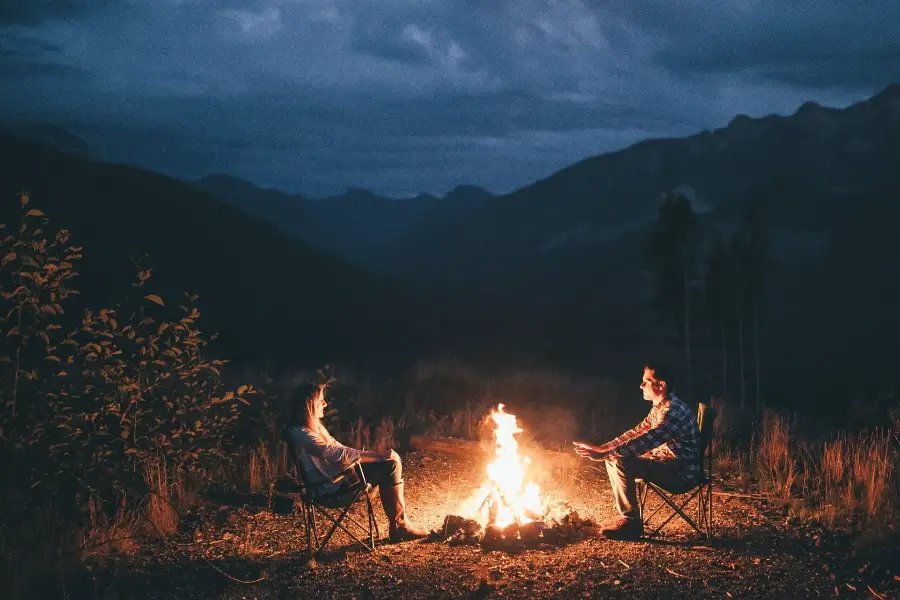
Now that we’ve explored the challenges, let’s switch gears and talk about solutions.
Yes, climate change is making it harder for campers, but that doesn’t mean we’re packing up our tents and heading home. Far from it!
Instead, we’re learning, adapting, and finding new ways to enjoy the great outdoors.
So, let’s dive into the innovative strategies campers like you and me are using to navigate this changing landscape.
Because, after all, a little challenge just makes the adventure even more rewarding, right?
Choosing Safer Camping Sites
Let’s start with where we set up camp. Gone are the days when any old spot would do.
Now, we need to be a bit more strategic, and choosing safer camping sites is one way we’re adapting.
This means opting for sites that are less exposed to extreme weather events, like heavy rain or high winds.
It also means being mindful of the risk of wildfires and avoiding areas with a lot of dry vegetation.
It’s all about being aware of our surroundings and making smart choices.
Preparing for Extreme Weather Events
Next up is preparation. You know the saying, Hope for the best, prepare for the worst?
Well, it’s become something of a mantra for us campers. As rvlife.com points out, preparing for extreme weather events is crucial.
This could mean packing extra layers for unexpected cold snaps, bringing rain gear even if the forecast is clear, or having a plan in case of sudden stronger rainstorms.
It’s about expecting the unexpected and being ready to handle whatever Mother Nature throws our way.
Adjusting Camping Schedules and Locations
Last but not least, we’re getting creative with when and where we camp.
Adjusting our camping schedules and locations is another way we’re adapting.
Maybe that means camping in the shoulder seasons when the weather is milder.
Or exploring new areas and higher elevations that are less affected by climate change.
It’s about being flexible and open to new experiences. After all, isn’t that what camping is all about?
The Role of Campers in Mitigating Climate Change
As campers, we have a unique connection to the great outdoors.
We’ve seen firsthand the beauty of a starlit sky, the tranquility of a quiet forest, and the thrill of a mountain peak.
But with that connection comes responsibility. Climate change is not just a problem for scientists and politicians to solve.
We all have a role to play. And as campers, we’re in a prime position to make a difference.
So, let’s explore how we can turn our love for camping into action and help mitigate the effects of climate change.
Practicing Leave-No-Trace Camping
First and foremost, we can make a big difference by simply being mindful of our impact when we camp.
Practicing leave-no-trace camping is a great way to start. This means exactly what it sounds like, to leave the campsite the way you found it.
Don’t leave any trash behind, avoid disturbing wildlife, and generally try to minimize your impact on the environment.
It’s a simple concept, but if all campers followed these principles, it would go a long way toward preserving our natural spaces for future generations.
Supporting Conservation Efforts
Another way we can help is by supporting conservation efforts.
This could mean donating to organizations that protect our natural spaces, volunteering for clean-up events, or even just spreading the word about the importance of conservation.
Every little bit helps, and as people who regularly enjoy these spaces, we have a vested interest in keeping them healthy and thriving.
Advocating for Climate Change Policies
Finally, we can use our voices to advocate for policies that address climate change.
This could mean voting for politicians who prioritize climate action, supporting legislation that reduces greenhouse gas emissions, or even just talking to our friends and family about the importance of tackling climate change.
It might not seem like much, but these conversations can have a ripple effect, and the more people are aware of the issue, the more pressure there will be on decision-makers to take action.
Climate Change Is Making It Harder For Campers FAQs
We’ve covered a lot of ground. But you might still have a few questions buzzing around in your head.
That’s why we’ve included this handy FAQ section. Here, we’ll tackle some of the most common questions about climate change and camping.
So, let’s dive in and clear up any lingering uncertainties you might have.
Q. How is climate change affecting camping seasons?
A. Climate change is leading to more extreme and unpredictable weather patterns, which can affect the traditional camping seasons.
For instance, warmer temperatures might extend the camping season in some areas, but they can also increase the risk of heat waves and wildfires in the summer.
On the other hand, colder areas might see shorter camping seasons due to longer and harsher winters.
Q. What can I do to stay safe while camping in a changing climate?
A. Staying safe while camping in a changing climate involves being prepared and staying informed.
Check the weather forecast before you go, and be ready for sudden changes. Pack appropriate gear for different weather conditions, and always have a plan in case of emergencies.
Choose your camping sites wisely, avoiding areas prone to natural disasters like floods or wildfires.
Q. How can I reduce my environmental impact while camping?
A. Reducing your environmental impact while camping can be achieved through practices like leave-no-trace camping, which involves cleaning up after yourself and not disturbing the natural environment.
You can also reduce your carbon footprint by carpooling or using public transportation to get to your camping destination.
Additionally, consider using renewable energy sources, like solar power, for your camping needs, and try to minimize waste by bringing reusable items instead of disposable ones.
Climate Change Is Making It Harder For Campers Final Thoughts
We’ve journeyed through the challenges and adaptations, answered some burning questions, and hopefully, sparked a few ideas on how we can make a difference.
But as we wrap up this discussion, let’s take a moment to reflect on what this all means for us as campers and lovers of the great outdoors.
So, gather around the campfire one last time as we draw our exploration to a close.
The Future of Camping in a Changing Climate
As we look ahead, it’s clear that camping as we know it is changing. But that doesn’t necessarily mean it’s all bad news.
Yes, we’re facing new challenges, from rising temperatures to more frequent wildfires.
But we’re also finding new ways to adapt and continue enjoying our time in the great outdoors.
We’re exploring new places, trying out different camping seasons, and learning how to be more resilient in the face of change.
So, while the future of camping in a changing climate might look different, it’s still full of potential for adventure and connection with nature.
The Importance of Individual and Collective Action
Throughout this discussion, one thing has become abundantly clear: we all have a role to play in addressing climate change.
As individuals, we can make a difference through our choices and actions, from practicing leave-no-trace camping to advocating for climate policies.
But we can also make a difference as a collective. By coming together as a community of campers, we can support conservation efforts, share knowledge and resources, and amplify our impact.
Because at the end of the day, tackling climate change isn’t just about preserving our camping trips.
It’s about preserving our planet for future generations.

